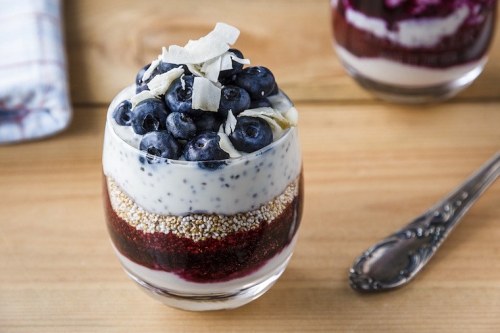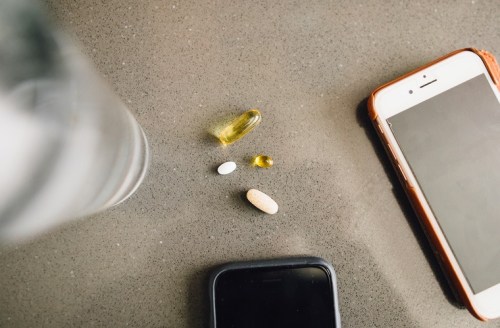You can dutifully eat kimchi, pop a daily pill, and spray your home with good bacteria, but it’s still possible you’re not reaping all the gut-healing, skin-saving benefits of probiotics. You’re dealing with living microorganisms, after all, and they’re complex things. So how do you know if you’re getting probiotics in a form your body can truly use?
If anyone can answer that question, it’s Mary Ellen Sanders, Ph.D., an internationally-recognized consultant in probiotic biology. She’s been helping food and drug companies enrich their foods with the most effective probiotic strands for 25 years—she knows more than a thing or two about good digestion. Keep reading for her tips on how to choose the best probiotic for your body. (Sneak preview: it’s about more than just gut health!)
Here’s how to be sure your probiotics are really getting to your gut.

How to get the most out of probiotic-rich foods
Sanders is all about filling up on probiotic powerhouses, but she warns that not all food sources are created equal. “If you get a jar of pickles from the store, those are all fermented,” she says—and, yes, that’s a good thing. “The problem is that they’ve been heat pasteurized, so they have a long shelf life,” Sanders explains. Heat kills the live bacteria, which is what really works wonders on your digestive tract. So a heat-pasteurized pickle simply isn’t going to do much for your gut. Similarly, if you warm up your sauerkraut or put yogurt in your broccoli soup, the probiotics won’t be effective. “You have to eat it raw,” Sanders stresses.
In addition to sticking with, well, fresh fermented foods, Sanders recommends keeping an eye out for products from credible brands that enhance their foods with live bacteria as part of their core mission. This usually requires doing a little Googling before your shopping trip. “Some companies make a point of making sure the probiotics in their products stay alive,” she says. “They’re specifically designed for that.”

How to get the most out of probiotic supplements
Taking a probiotic pill every day can get pricey, so you definitely want to make sure you’re not throwing your money away. The first step, Sanders says, is being sure that the probiotic you’re taking actually targets the symptoms you’re hoping to address, as probiotic manufacturers pick and choose from different bacteria strands. “There are probiotic supplements that help with IBS-related symptoms, upper respiratory problems, and even reoccurring vaginosis,” she says. (Here’s a cheat sheet for seeing which strains are good for which problems.)
Unfortunately, there isn’t a lot of regulation. “There are no government tests to ensure these products have what they say they have,” says Sanders. That doesn’t mean there aren’t good options out there; it just means you must do your homework. The first thing to look for? That the company tested their product. The second thing? That the studies were performed ethically and with as little bias as possible.
Yes, drug companies sponsor studies because they have something to gain, but Sanders says that doesn’t necessarily mean they’re misleading. Ask yourself: Was the study double blind to prevent bias? Is there a disclosure at the end ensuring the company couldn’t inform the results? Sifting through the research is how you get the biggest bang for your buck.

How to get the most out of everything else
With probiotics popping up in everything from home sprays to pizza crusts, it’s hard to weed through the gimmicks to find the gems. Sanders’ earlier advice stands: Look at any research you can find with a really critical eye, using her suggested questions: Was the study double blind to prevent bias? Is there a disclosure at the end ensuring the company couldn’t inform the results?
Also, pay attention to your body. If you’re using a daily probiotic—regardless of its form—your digestion should definitely be (and stay) on track. If it feels off in any way, it’s worth trying something different, or talking to your doctor if you’re really concerned. Sure, it takes a little digging to find your perfect probiotic, but the homework will pay off—for your wallet and your body.
Fun fact: this tropical fruit is an amazing, natural probiotic. And don’t forget kraut—here are some gut-healthy recipes to get you started.
Sign Up for Our Daily Newsletter
Get all the latest in wellness, trends, food, fitness, beauty, and more delivered right to your inbox.
Got it, you've been added to our email list.











